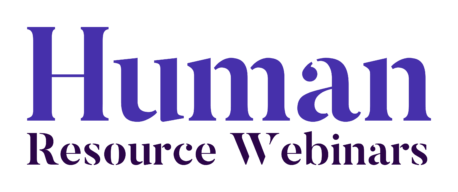There's a big difference between the core functions of talent acquisition and people operations (usually just called “people ops”).
What is People Ops? People operations, also known as people operations or people management, is the direction of workforce and talent management at a company. People Ops is the stuff inside people operations: HR, talent acquisition, payroll, benefits, payroll, benefits, and compensation.
What is talent acquisition? Talent acquisition focuses on acquiring external candidates to fill jobs. This may be internal, or external such as with a recruiting agency partner.
As you can probably imagine, there is debate in the HR world about whether Talent Acquisition or People Ops should own the employee lifecycle. Each group has its own strengths and weaknesses, so it's important to understand the difference between the two before making a decision.
Although Talent Acquisition and People Ops may seem similar, they are actually quite different.
Talent Acquisition is focused on finding and recruiting the best possible candidates for open positions. They're the ones responsible for creating job postings, sourcing candidates, and conducting interviews.
People Ops, on the other hand, is responsible for everything that happens after an employee is hired. They're in charge of onboarding, performance management, benefits, and payroll. People Ops are more focused on the process of onboarding, regular employee engagement, culture building, and retaining employees
So, which one is better? It really depends on your needs.
The 3 major differences between Talent Acquisition and People Ops:
1. Talent Acquisition is focused on sourcing and hiring candidates, while People Ops is focused on onboarding and retaining employees.
2. Talent Acquisition is typically a function of the Human Resources department, while People Ops is typically a function of the Operations department.
3. Talent Acquisition is typically more transactional in nature, while People Ops is typically more strategic.
Why People Ops is better than Talent Acquisition for certain companies
While Talent Acquisition is great if you’re looking to fill a position quickly, People Ops is better if you’re looking to retain an employee for the long run. After all, it’s much cheaper to retain an employee than it is to hire a new one
It’s a common misconception that People Ops and Talent Acquisition are at odds with one another, but they actually work best when they’re closely aligned across the employee lifecycle.
People Ops plays a much bigger role in employee satisfaction and retention than you might think. Companies that specialize in People Ops work to ensure that every employee is fully engaged People Ops plays a much bigger role in employee satisfaction and retention than you might think. After all, People Ops is about so much more than just onboarding.
These professionals are responsible for making sure every employee is fully engaged, meaning they’re happily working at their job, earning a satisfactory salary and receiving adequate benefits and workplace perks. People Ops plays a much bigger role in employee satisfaction and retention than you might think. These HR professionals are responsible for making sure every employee is fully engaged, meaning they’re happily working at their job, earning a satisfactory salary and receiving adequate benefits and workplace perks.
So, what does this mean for startups and smaller organizations?
For most startups, putting a dedicated People Ops professional on board isn’t a possibility right away, so it’s up to the CEO or founders to fill that role. In fact, most startups don’t have a talent acquisition specialist either. Instead, they take on those duties in addition to their others. Because of this, and unlike Talent Acquisition, which is usually led by a specialist, CEOs and founders often take on talent acquisition duties themselves, adding them to their already-full workloads. This can cause a lot of stress and tension, especially when hiring is necessary quickly. Knowing exactly what you’re looking for and how to find it are critical components to building a talent acquisition isn’t a priority for you. While startups may think they need people with certain skills or qualifications, they often don’t know exactly what they’re looking for or how to find it. This leads to wasted time and misdirected energy.
Creating a culture that candidates and employees will love
It's important to point out that People Ops manages the internal employees of a company, including hiring, development, management, leadership, and culture.
The culture a company strives to create is critical to the future success of the organization. Later on, you’ll want to protect that culture from bigger companies looking to buy you or poach your employees. And it also contributes to inclusion and belonging, enabling a safe space for employees to share their ideas. Psychological safety is critical to achieve inclusion and belonging in the workplace.
The relationship between talent acquisition and people operations
You might be pondering about these questions below, like any good HR and People leader:
- You need talent acquisition help NOW…but will you need it later?
- What does good talent acquisition look like?
- What does the world look like from a talent acquisition partner's perspective?
- What about from the viewpoint of a people operations professional?
- How closely aligned are our talent acquisition and people operations teams were working together?
As it turns out, many HR professionals like yourself are asking these questions. And, unfortunately, most organizations are not aligned with their external or even internal talent acquisition/recruiting agency partners.
What does a talent acquisition department need from People Ops to achieve the best results?
People operations should be heavily involved with candidate experience from first touch to final conversion to a candidate success and recruiting or talent acquisition team.
When hiring quickly, it’s important to get the people operations elements of your hiring process right the first time. Doing so takes experience and knowledge—and a lot of time. Getting things wrong not only means a longer recruiting process, but also could result in expensive hires that don’t work out and hurt your culture.

